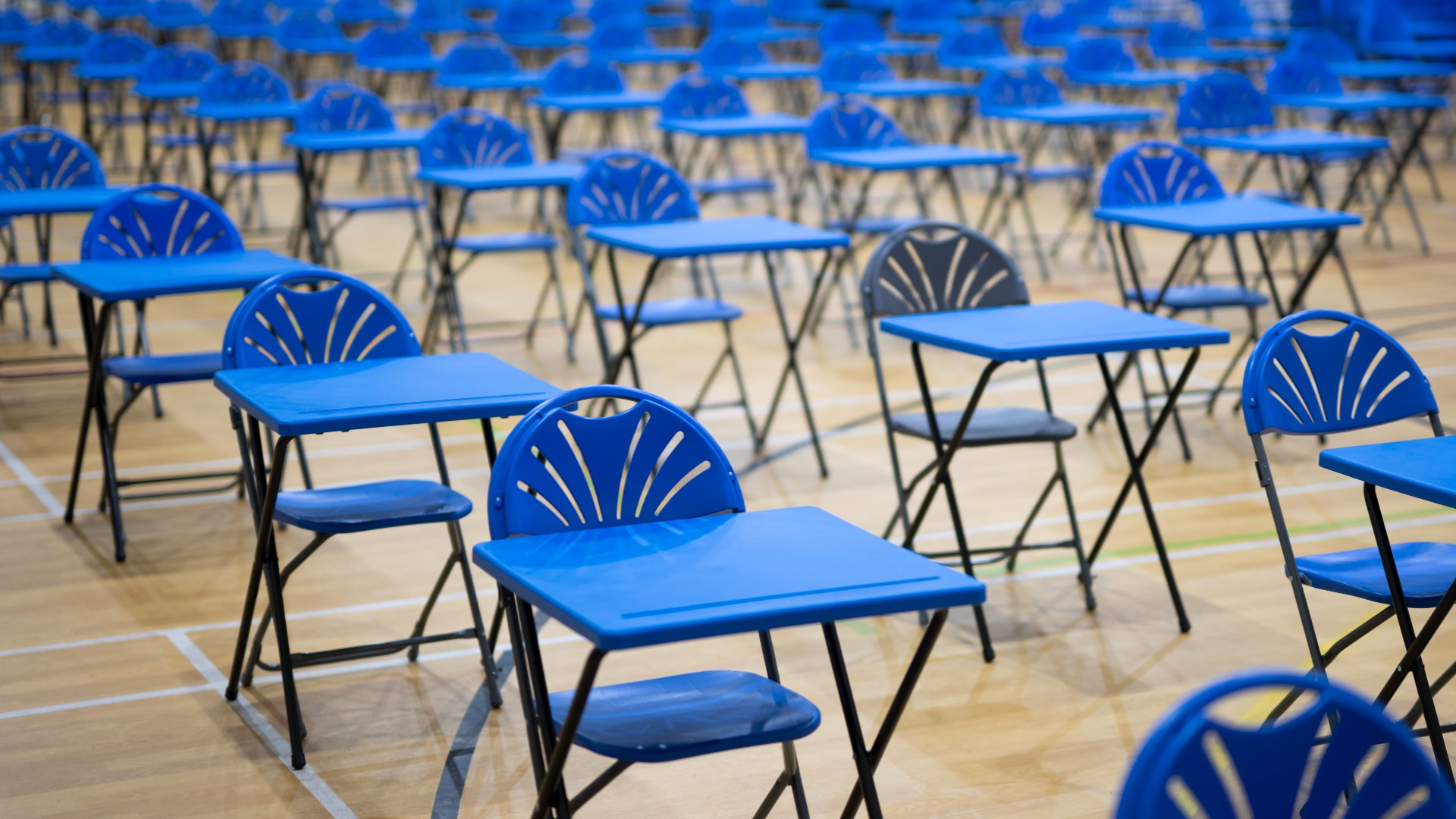A-level results: How the goalposts have moved
Top grades are rising - but not for the first batch of students sitting a new style of exam

A free daily email with the biggest news stories of the day – and the best features from TheWeek.com
You are now subscribed
Your newsletter sign-up was successful
The proportion of students awarded A and A* grades at A-level has risen by 0.5 per cent – the first increase in six years – but dropped slightly in 13 subjects trialling a new exam system.
The exam regulator Ofqual "sought to reassure students that they would not be disadvantaged by being the first to take the revised courses", reports The Guardian. But the regulator denied it had intervened to boost falling grades.
"We have overseen the A-level awarding process in the same way as in previous years and have not intervened to ask any exam board to change the grade boundaries they have set this summer," said Sally Collier, the chief regulator.
The Week
Escape your echo chamber. Get the facts behind the news, plus analysis from multiple perspectives.

Sign up for The Week's Free Newsletters
From our morning news briefing to a weekly Good News Newsletter, get the best of The Week delivered directly to your inbox.
From our morning news briefing to a weekly Good News Newsletter, get the best of The Week delivered directly to your inbox.
How have A-levels been reformed?
"Under the new system, students sit all A-level exams at the end of two years of study, instead of taking modular exams throughout," says the BBC.
This linear approach also means A-levels have been "de-coupled" from AS-levels – now a separate qualification that does not count towards an A-level.
The other significant change, says the Daily Telegraph, is a "reduced emphasis on coursework".
A free daily email with the biggest news stories of the day – and the best features from TheWeek.com
Why did these changes come about?
Critics argued that the old system led to "modular mayhem", says leading educationist Kevin Stannard in the Times Educational Supplement. According to the Telegraph, this fuelled a "cram and forget" approach to learning as opposed to a holistic one, which some experts believe leads to a better grasp of a subject.
Policy Exchange's John Blake told the BBC that the modular system also encouraged a "culture of endlessly resitting examinations", leading to accusations of grade inflation.
The new A-levels, therefore, have been designed to be more academically rigorous, in keeping with their "original function of assisting elite universities in selection", says Stannard.
What will the impact of the changes be?
Whether the new A-level will fulfil its stated purpose of raising the bar in standards remains to be seen.
In the short term, the "upheaval" of the reforms has "created unnecessary stress for pupils and teachers alike", says Rosamund McNeil of the National Union of Teachers. Over time, the changes are intended to create more breathing space for teaching and learning.
AS levels, meanwhile, are "expected to wither on the vine", says the Telegraph. Geoff Barton, leader of the ASCL head teachers union, told the BBC this would lead to a "narrowing of options" for students.
-
 6 of the world’s most accessible destinations
6 of the world’s most accessible destinationsThe Week Recommends Experience all of Berlin, Singapore and Sydney
-
 How the FCC’s ‘equal time’ rule works
How the FCC’s ‘equal time’ rule worksIn the Spotlight The law is at the heart of the Colbert-CBS conflict
-
 What is the endgame in the DHS shutdown?
What is the endgame in the DHS shutdown?Today’s Big Question Democrats want to rein in ICE’s immigration crackdown
-
 How will new V level qualifications work?
How will new V level qualifications work?The Explainer Government proposals aim to ‘streamline’ post-GCSE education options
-
 Pros and cons of the International Baccalaureate
Pros and cons of the International BaccalaureatePros and Cons IB offers a more holistic education and international outlook but puts specialists looking to study in the UK at a disadvantage
-
 The class of ‘23: worst off school-leavers yet?
The class of ‘23: worst off school-leavers yet?Talking Point The generation who lost critical months of schooling and weren’t able to sit their GCSEs now approaching a dysfunctional university
-
 The pros and cons of going to university
The pros and cons of going to universityPros and Cons Record-high costs and competition leave A-level students questioning worth of a degree
-
 English literature: is it doomed?
English literature: is it doomed?Speed Read Arts and humanities courses are under attack thanks to a shift to ‘skills-led’ learning
-
 Are UK classrooms a new political battleground?
Are UK classrooms a new political battleground?Speed Read Government has issued new guidance on political neutrality in schools
-
 Kathleen Stock resigns: the ‘hounding’ of an academic on the front line of transgender rights debate
Kathleen Stock resigns: the ‘hounding’ of an academic on the front line of transgender rights debateSpeed Read Sussex University students claim ‘trans and non-binary students are safer and happier for it’
-
 Are too many people going to university in the UK?
Are too many people going to university in the UK?Today's Big Question Ministers urge school-leavers to consider alternative paths